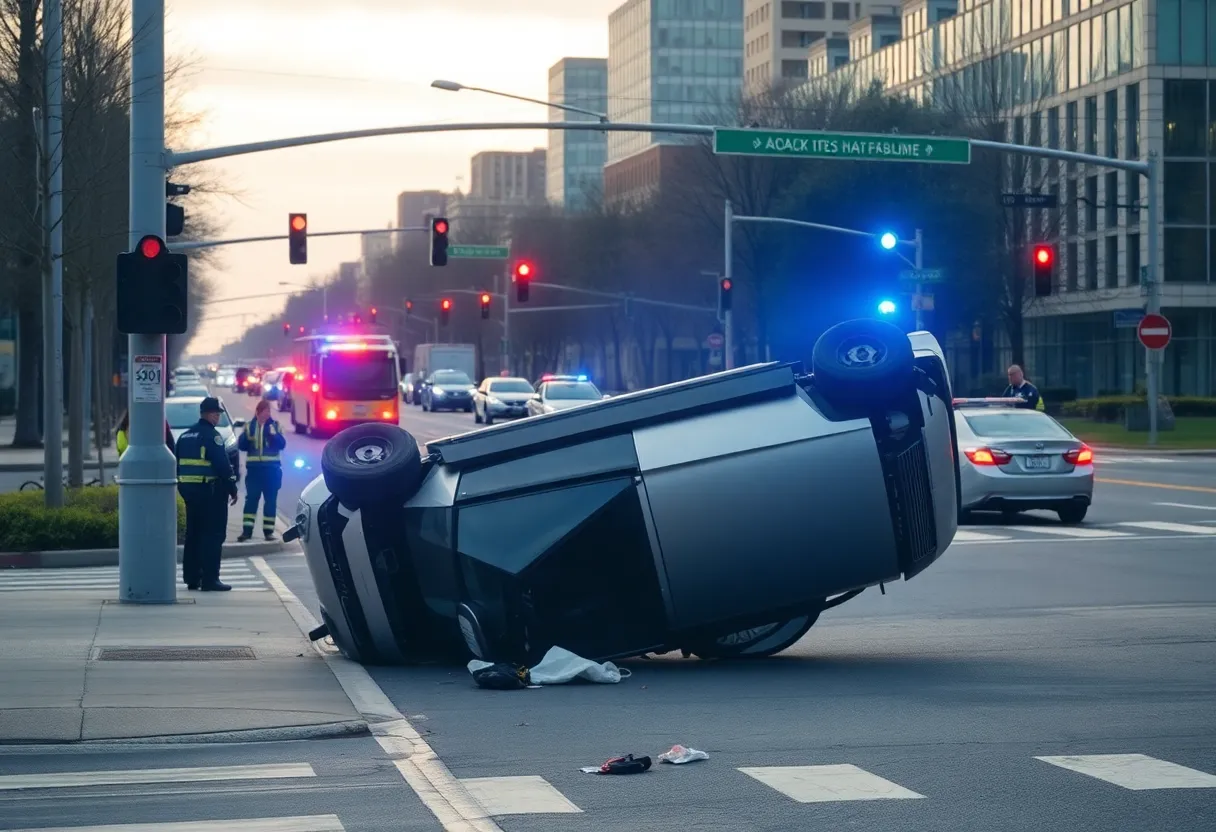News Summary
California is engulfed in a contentious debate regarding the future of its film industry as Governor Gavin Newsom and President Trump clash over proposed film tax incentives and tariffs. Newsom is pushing for an increase in state tax credits to combat a significant decline in film production, while Trump criticizes his management and proposes tariffs on foreign films. The ongoing conflict highlights the industry’s struggles post-pandemic and raises concerns about job stability and the economic health of Hollywood.
California is currently at the center of a heated debate over the future of its film industry, as Governor Gavin Newsom and President Donald Trump clash over proposed film tax incentives and tariffs on foreign films. Newsom has called for collaboration on a substantial film tax credit to support job growth in the state, asserting that California has historically been the backbone of the film industry. His recent remarks emphasize the need for federal partnership to “Make America Film Again” as he responds to Trump’s recent announcement of a 100% tariff on all films produced outside the U.S.
President Trump made waves with his declaration that the American movie industry is “DYING a very fast death.” This statement comes amid significant challenges facing Hollywood, including the lingering effects of the COVID-19 pandemic and a series of strikes in 2023 that have further strained the industry. Recent statistics reveal that film production has not rebounded to pre-pandemic levels, showing a concerning 22% drop in the first quarter of 2025 compared to 2024.
In light of these challenges, Newsom, along with Los Angeles Mayor Karen Bass, proposed increasing California’s annual film tax credit from $330 million to $750 million last year. This move is part of a broader strategy to keep jobs in California and make the state more attractive for film production. However, Trump’s response has been largely critical. In a recent Oval Office meeting with Canadian Prime Minister Mark Carney, he labeled Newsom as “grossly incompetent” regarding the management of the film industry. Trump also pointed fingers at Newsom for the industry being “decimated” by foreign competition.
In a strong show of support for his proposal, Trump announced plans to meet with film executives to rally support for the tariffs, which he justified by labeling foreign productions as a “national security threat.” This assertion has raised eyebrows, leading to skepticism among critics who argue that such tariffs would negatively affect the industry rather than bolster it. Instead, these critics advocate for tax credits as a more effective means of support.
The economic impact of Trump’s tariff announcement has been palpable, resulting in stock market declines within the entertainment sector. Major studios like Lionsgate and Warner Bros. recorded significant losses following his statements. As public figures, including late-night hosts, mock the rationale behind Trump’s tariff proposal, the anxiety within the film industry grows.
Newsom’s counterproposal includes intentions to put forth a $7.5 billion federal tax incentive scheme for the film industry, which would represent the largest single government subsidy for the sector in the U.S. Currently, state-driven film tax incentive programs are in place across the country, but there is no national program. As it stands, California allocates $330 million annually for film incentives, which Newsom aims to enhance significantly.
Support for a federal film tax credit is growing among politicians, including California Senator Adam Schiff, who has openly condemned Trump’s tariff plan. Schiff’s backing highlights the divide in opinions between state leaders advocating for incentive schemes and federal leadership proposing tariffs.
Despite Trump’s critical stance on California’s management of various projects, including an esteemed high-speed rail initiative, he acknowledges maintaining a cordial relationship with Newsom. In a provocative challenge, Trump suggested Newsom might consider running for president, hinting that the governor’s management of Californian projects could hinder his ability to campaign effectively.
As the clash between Newsom and Trump continues to unfold, the future of the film industry hangs delicately in the balance amid proposed tariffs and calls for enhanced tax incentives. Stakeholders within the film community remain watchful, recognizing the implications of these proposals on jobs, production levels, and the overall health of the U.S. entertainment landscape.
Deeper Dive: News & Info About This Topic
- CBS News
- The Guardian
- The New York Times
- Variety
- Hollywood Reporter
- Wikipedia: Film Industry in California
- Google Search: Governor Gavin Newsom film tax credit
- Google Scholar: Film Tax Incentives
- Encyclopedia Britannica: Tariff
- Google News: Gavin Newsom Trump film tariffs








